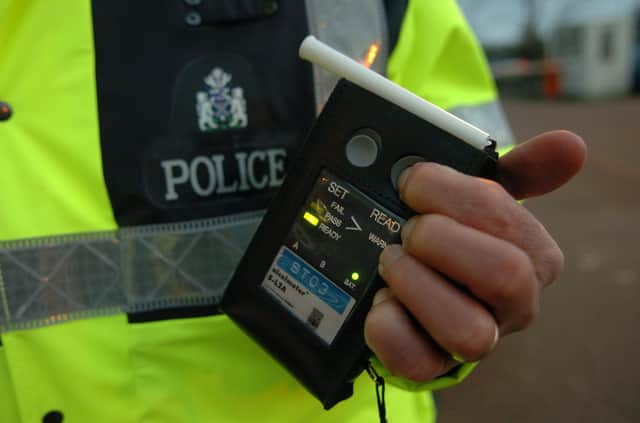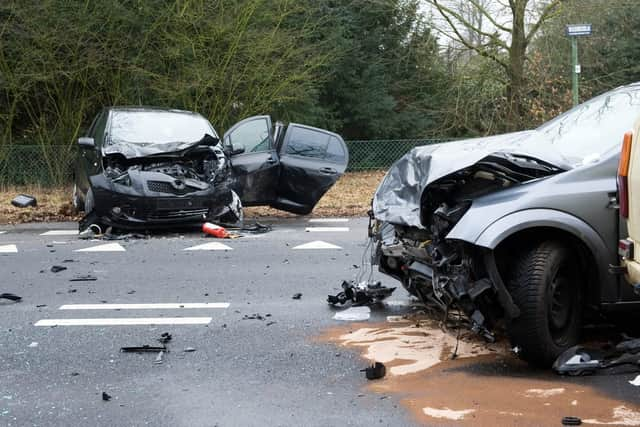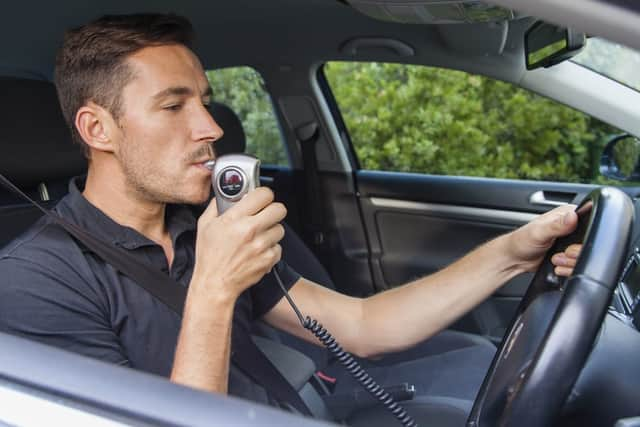Calls for in-car breathalysers and vehicle seizures as drink-drive crashes increase


The Government has been urged to rethink its approach to drink-driving after the number of crashes involving drink-drivers increased to nearly 6,000.
An estimated 5,890 collisions in 2018 involved at least one driver who was over the drink-drive limit, according to figures from the Department for Transport.
Advertisement
Hide AdAdvertisement
Hide AdThat is an increase of three per cent on the previous year’s 5,700 and means that around one in 20 of all crashes on UK roads involves at least one driver who was over the legal drink-drive limit.
The figures have led to calls for increased funding for traffic police and discussions about the rapid introduction of alcolock systems in the cars of offenders. They have also prompted demands for England and Wales to cut their drink-drive limit in line with Scotland’s and consider seizing the vehicles of repeat offenders.


The DfT data showed that the number of drink-drive-related deaths fell slightly in 2018 compared with 2017, with an estimated 240 people killed down from 250. That means that an estimated 13 per cent of all road fatalities involved at least one drink-driver.
However, the overall number of casualties rose very slightly, from 8,600 to 8.680, maintaining a casualty rate that has changed very little since 2013 and accounts for five per cent of all road casualties.
Nicholas Lyes, head of policy at the RAC said that figures emphasised the need for more police on the roads and the introduction of in-car technology to stop repeat offenders.
He said: “These are disappointing figures which illustrate the need for much more to be done to curb the plague of drink-driving.
“The Government has indicated it is looking at the possibility of introducing alcolock technology to prevent reoffenders from getting behind the wheel, so we’d like to know what progress is being made here. This, together with more police on our roads conducting breathalyser tests, could go a long way to cutting drink-drive deaths in the future.”
Alcolock technology works like a regular breathalyser but uses a system built into the car to check a driver’s breath-alcohol limit. If they are over the legal limit the car will be immobilised.
Advertisement
Hide AdAdvertisement
Hide AdThe Government said last year that it was considering their introduction to help address the problem of repeat drink-drive offenders.
From 2022, all new cars will have to be fitted with the wiring required to install an alcolock system.


Neil Greig, director of policy and research at road safety charity IAM RoadSmart, said a new approach was needed to tackle the lack of progress. He said: “Once again progress on reducing the toll of death and injuries from drink-driving has stalled.
“There is no one simple answer to reducing these figures, but at IAM RoadSmart we believe a much smarter package of measures is needed from the Government including a lower drink-drive limit to reinforce good behaviour, fast-track of evidential roadside testing machines to release police resources and tailored approaches to help drivers with alcohol problems.
“Rehabilitation courses work and we believe all those convicted of drink-driving should be sent on one automatically rather than having to opt in. More use of alcohol interlocks and extra penalties such as vehicle forfeiture, as used in Scotland, could all be part of a more joined-up approach to the problem.”
The latest data also showed that 80 per cent of all drink-driving crashes involved male riders or drivers, although 34 per cent of all casualties were women.
A DfT spokeswoman said that the data supported its decision to target young men with its latest anti-drink-drive campaign.
She said: "Drink-driving is truly unacceptable. It's a senseless act that puts everyone at risk.
Advertisement
Hide AdAdvertisement
Hide Ad"These new statistics show that four in five drink-drivers who caused accidents were male. That's why we're focusing our work on young male drivers, with our award-winning Think! campaign highlighting that mates don't let mates drink-drive."